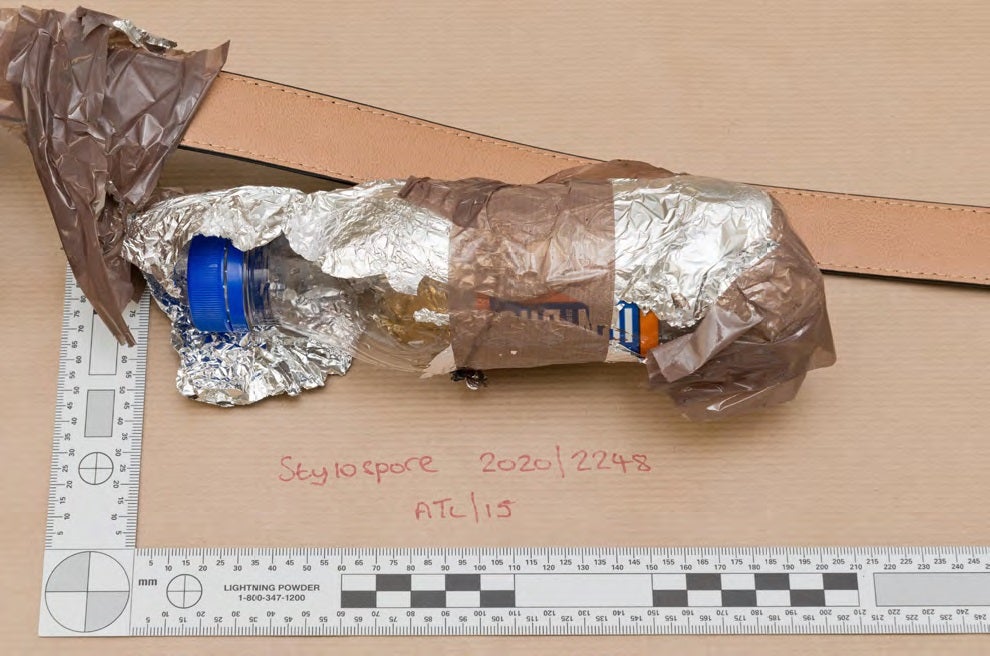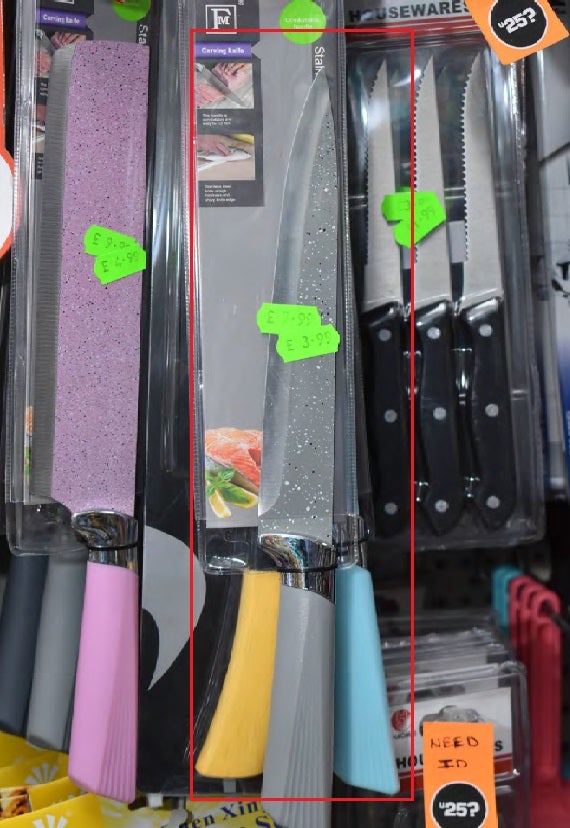Police and MI5 missed chance to arrest Streatham terrorist two days before attack, inquest hears
Sudesh Amman had voiced his wish to carry out a terror attack before leaving prison

Police and MI5 considered arresting a former jailed terrorist two days before he went on a knife rampage in Streatham, an inquest has heard.
Sudesh Amman, 20, stabbed two people who survived on the London district’s high street before being shot dead by police on 2 February 2020.
An inquest into his death heard that he was being monitored by police and MI5 because of his known aspirations to carry out a terror attack.
At a joint meeting on 31 January 2020, officers considered arresting Amman after surveillance revealed that he purchased items that could be used to make a fake suicide vest.
Detective Inspector Luke Williams, of the Metropolitan Police Counter Terrorism Command, said it was decided not to arrest Amman because “no offences were identified”.
Instead, police and MI5 drew up a series of “tipping points” that would spark different kinds of intervention.
They included breaching a curfew, entering areas of central London that he was excluded from and purchasing a knife.
The plan said police would also swoop if they received intelligence that Amman was planning an attack or making a fake suicide vest.
However, the inquest heard that police did not search Amman’s room before the attack or ask staff at the probation hostel to inspect it.
During the attack, Amman was wearing a fake suicide vest constructed from materials purchased at Poundland on 31 January.
He had been under surveillance since his release from prison on 23 January – 10 days before the attack.
Amman had originally been arrested for planning a terror attack in May 2018, but was charged with the lesser offences of possessing and disseminating terrorist material.

The inquest heard that while inside the high-security HMP Belmarsh prison, he vocally expressed his jihadist beliefs and told fellow inmates he wanted to commit a terror attack or join Isis.
Amman radicalised prisoners and associated with high-profile terrorists including Hashem Abedi, the Manchester Arena bomber’s brother, and a plotter who attacked police with a sword outside Buckingham Palace.
While inside jail, Amman told his mother that HMP Belmarsh was a “blessing”, adding: “I used to ask Allah to give me good brothers and companions ... he answered my prayers and put me here.”
A month before his release, a handwritten pledge to the leader of Isis was found in his cell, and official assessments found that Amman was a high risk to the public and may encourage others to commit terror attacks.
The inquest heard that a senior Metropolitan Police officer expressed concerns about Amman’s release to prison officials and asked if his sentence could be extended, but was told it could not.
A copy of the letter, which was shown to the inquest, cited intelligence that Amman had been heard shouting in Arabic that “everyone will come under the black flag [of Isis]”.
It said he had “openly expressed a strong loathing towards non-Muslims” and his own desires to commit terror attacks, go to the afterlife, kill the Queen, become a suicide bomber and join Isis. Amman also said he approved of the killing of Lee Rigby.

Jenny Louis, the governor of Belmarsh, said Amman was closely monitored and subjected to “disruption movements” to different parts of the prison.
“Because of comments he made, engagements with others, this was somebody who was trying to engage with others in a really unacceptable way in custody,” she added.
A psychological report conducted during Amman’s imprisonment concluded that he may have the intent and capability of launching a terrorist knife attack when freed.
He was released automatically on 23 January 2020, placed in a probation service hostel in Streatham and subjected to a curfew, electronic tag and several licence conditions.
He immediately became the subject of a “priority investigation” by MI5 and the Metropolitan Police, the inquest heard.
He was also being managed by the probation service, an overt police unit and had meetings with ideological and practical mentors.
Officials had planned for his release for months as part of multi-agency public protection processes, which were also used for the Fishmongers’ Hall attacker Usman Khan.

Amman was initially under daytime surveillance by undercover officers because of concerns he might commit another offence, and on 29 January the officers were authorised to carry guns.
On that day, Amman is believed to have carried out hostile reconnaissance on Streatham High Road by going into a series of shops without making any purchases.
On 31 January, Amman was seen looking at knives in a shop and purchasing items that could be used to make a hoax explosive belt, and the operation was upgraded to 24-hour armed surveillance.
Amman was being followed by four undercover armed police officers on foot when he launched the attack, while others were in vehicles on surrounding roads.
The inquest heard how he stole a knife from a shop, which he visited two days before without buying anything, and ran outside while being chased by armed police.
Within seconds, Amman stabbed a woman in the back outside a pub and shortly afterwards, struck a man in his torso. Both victims survived.
Amman ran on until stopping outside a Boots chemist and turning to officers while holding the knife, at which point he was shot twice by police.
He was pronounced dead at the scene, following an attack that lasted 62 seconds in total. The inquest continues.




Bookmark popover
Removed from bookmarks